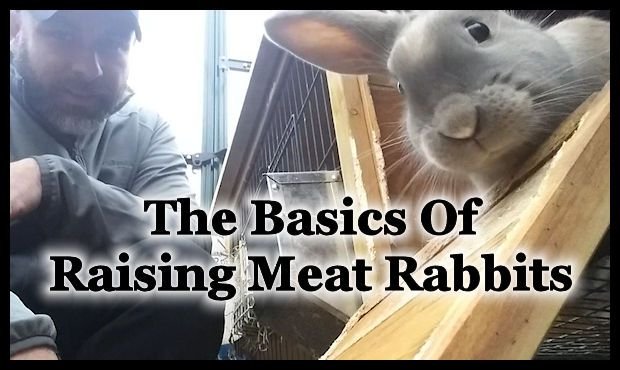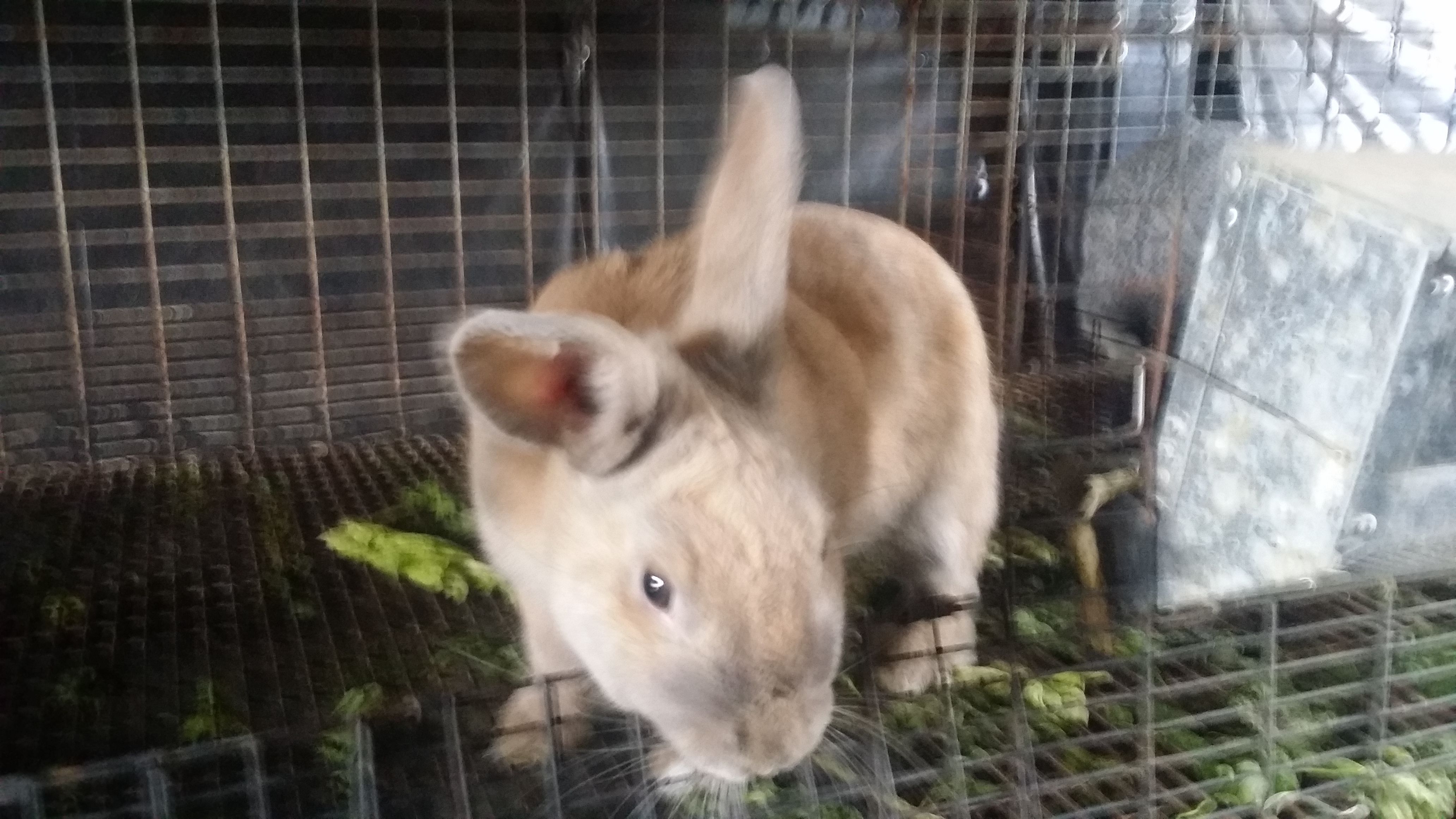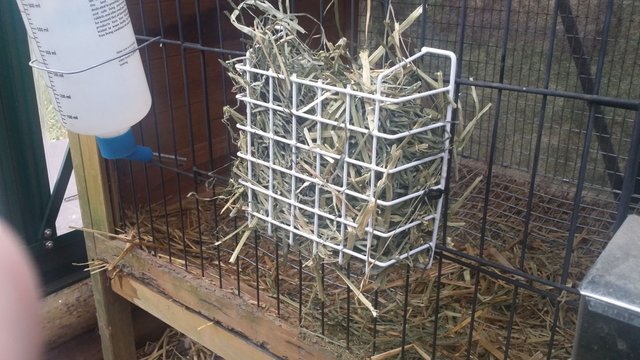The Basics of Raising Meat Rabbits

In this video I cover the basics of raising meat rabbits. This was recorded from one of our regular online video live events where we discuss a variety of homesteading topics to help and encourage both experienced and beginner homesteaders.
List of Topics Discussed In This Video:
Reasons For Raising Rabbits For Meat:
High meat to feed ratio – Roughly one pound of feed per three pounds of meat.
Doesn’t require much space for high yields
Easy to care for
Tastes really good – I hate to say it but it really does taste a lot like chicken.
Great garden fertilizer – Rabbit manure doesn’t even need to be composted, it can be put directly on the garden.
What Breed Should You Raise:
This is a list of the more common meat breeds.
New Zealand
American Chinchilla
Californian
Rex
Satin
Cinnamon

Cages or Colony?
I briefly cover this in this video but for more information see – http://smalltownhomestead.com/raising-rabbits-colony-or-cages/
Cage Types:
Wooden Hutches – Least favorite due to rabbits chewing on wood and difficulty in cleaning.
Wood and Wire Combination – Better that hutches but rabbits will still chew on wood.
Wire Cages – Best option for long lasting and ease of keeping clean.

Other Equipment You Need:
Water Bottles – You can also use bowls and you may consider heated bottles depending on your climate.
Feeders – Bowls can also be used instead but cage attached feeders make daily feeding easier.
Hay Rack – These can easily be made instead of purchasing.
Nesting Box – These also can be made with basic carpentry skills.

Feeding Rabbits:
I use a combination of all of these feeding option and I explain why in the video.
Pellets – Store bought feeding pellets come with all the minerals the rabbits need but if many desire to feed their rabbits in a
more natural way.
Forage – Through the warmer months foraging for your rabbit’s food is a great way to feed them and even save on feed costs.
Mine receive a healthy dose of dandelion, plantain, mulberry leaves and even plain grass.
Fodder – This is a great way to feed your rabbits especially in the winter months. This option provides them with greater protein and fiber and also helps with digestibility ofthe food.
Hay – Rabbits will need hay to chew on regularly to help with digestion.
Breeding Rabbits:
I give a brief overview of the breeding process.
From Birth To Butcher:
Time and Stages – Such as weaning, grow out cages and butchering age.
Common Problems:
Ear Mites – This is a common and easily treatable problem rabbits are prone to.
Coccidiosis – A serious problem usually resulting in dispatching the animal, more common in colony raised rabbits.
Hi! I am a robot. I just upvoted you! I found similar content that readers might be interested in:
http://smalltownhomestead.com/the-basics-of-raising-meat-rabbits/
Congratulations @sthomestead! You have completed some achievement on Steemit and have been rewarded with new badge(s) :
Click on any badge to view your own Board of Honor on SteemitBoard.
For more information about SteemitBoard, click here
If you no longer want to receive notifications, reply to this comment with the word
STOP